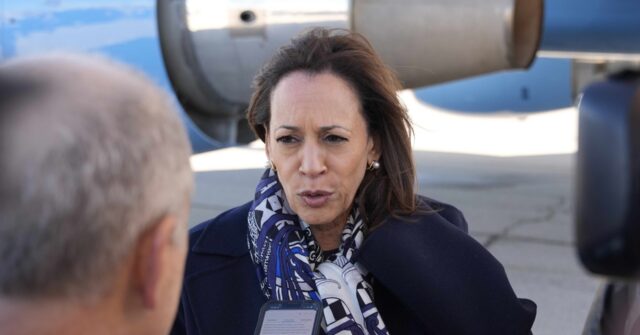On Wednesday, Vice President Kamala Harris expressed her support for the Biden-Harris administration’s stance regarding Israel and the humanitarian conditions faced by Palestinians in Gaza, despite denying that the administration threatened an arms embargo. This clarification comes in the wake of a leaked letter from Secretary of Defense Lloyd Austin, which suggested a potential cut-off of arms to Israel unless it addressed the humanitarian issues in Gaza. The revelation of this letter led to significant backlash, particularly from figures like former Israeli ambassador to the U.S., Michael Oren, who voiced concerns about the implications for America’s reliability as an ally and its role in globally defending democratic values.
Harris’s comments to journalists reinforced the administration’s position; when questioned about the letter that conditioned U.S. military assistance on Israel’s actions regarding the humanitarian crisis, she stated that the contents of the letter were clear and definitive. This response highlights the ongoing dialogue within U.S. politics regarding foreign aid, military support, and the moral obligations tied to humanitarian crises. By emphasizing that the letter “speaks for itself,” Harris underscored the administration’s commitment to addressing humanitarian needs as a condition for military support, thereby indicating a shift in U.S. foreign policy that prioritizes human rights alongside traditional security concerns.
Although Harris denied that the letter constituted a direct threat of an arms embargo, her previous remarks have suggested a willingness to explore such discussions. In a past address, she had mentioned being open to conversations about implementing an arms embargo in response to the crisis in Gaza, but this position was later softened by her campaign team. Such evolving stances reflect the complexities and nuances of U.S. foreign policy regarding Israel and Palestine, as it seeks to balance strategic partnerships with adherence to humanitarian principles. The administration’s actions may be interpreted as an effort to redefine traditional alliances in light of changing global dynamics and increasing attention to human rights issues.
The backlash from the Israeli government and supporters of Israel in the U.S. underscores the contentious nature of the Biden-Harris administration’s approach. Critics argue that any perceived weakening of military support could embolden adversaries and undermine Israel’s security. This perception challenges the Biden administration’s objective of maintaining strong ties with Israel while simultaneously addressing the humanitarian needs of Palestinians, revealing the delicate balance required in such a complex geopolitical landscape. The letter’s content has sparked debates about America’s role in the Middle East and its position as a peace broker in the Israeli-Palestinian conflict.
The debate over military aid to Israel and the associated conditions reflects broader concerns about accountability and the responsibilities that come with U.S. support. As conflict persists, the Biden administration faces pressure from both domestic and international audiences to adopt policies that are not only supportive of Israel’s defense but also conducive to peaceful resolutions and the welfare of Palestinian civilians. This tension is emblematic of the long-standing struggle to find a workable solution that satisfies the demands of both nations while addressing humanitarian crises that arise from prolonged conflict.
In conclusion, Vice President Kamala Harris’s recent statements signify a significant moment in U.S.-Israel relations, indicating that humanitarian considerations may increasingly influence military aid policies. As the Biden-Harris administration navigates the complexities of Middle Eastern politics, the challenge remains to uphold commitments to human rights while ensuring robust defense partnerships. The evolving narrative around military assistance, accountability, and humanitarian responsibility points toward a potential transformation in how the U.S. engages with both Israel and Palestine, reflecting a broader reassessment of strategic priorities in global diplomacy.

